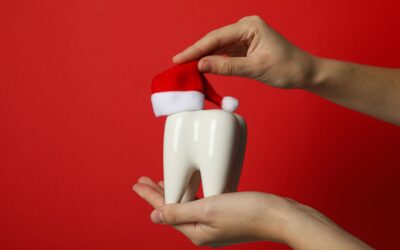As Halloween approaches, the supermarkets have stocked their shelves with everyone’s favourite sweets and chocolates. Kids’ eyes light up because soon their bags will be filled with more sweets than their little stomachs (and teeth) can handle.
October is the month of Halloween and sweets. But did you also know that October is National Dental Hygiene Month?
Practising the “Daily 4” on a daily basis will not only improve your oral health, but also your overall health since many diseases of the mouth are linked to heart disease, diabetes, osteoporosis, arthritis and obesity.
By taking care of our teeth and gums throughout our lifetime, we can control and even prevent conditions such as tooth decay and gum disease.
So, what are some simple ways we can take care of our teeth this October? Let’s take a look.
Brush Your Teeth Correctly
Let’s start with the basics – how do you brush your teeth? The way you brush your teeth can make a big difference to the health of your smile, but many people don’t realise that. The following tips will help you brush your teeth correctly:
- Brush with a medium-bristled toothbrush: Firm bristles may feel like they are cleaning your teeth, but they can actually harm your gums and tooth enamel. To avoid these problems, use a medium-bristled toothbrush.
- Brush your teeth gently; use gentle pressure when you brush them, just like with the bristles on your brush. If you brush too hard, you may damage the enamel and gums of your teeth.
- Rather than brushing back and forth, use gentle circular motions. Plaque will be removed without harming your teeth or gums.
- If you want to keep your smile healthy, floss just as often as you brush. Be sure to floss at least once a day to remove plaque and food particles from between your teeth.
Take Proper Care of Your Toothbrush
It is recommended to replace your toothbrush every few months – sooner if the bristles fray. Apart from replacing your toothbrush regularly, there are a few other things you can do to keep it clean. To keep your brush in tip-top shape, follow these tips:
- Rinse – this might seem like a no-brainer, but you should always rinse your toothbrush off after each use. This will remove any food particles or other debris that may be clinging to the bristles.
- Once you’ve rinsed off your brush, make sure it’s stored upright to allow it to air-dry. It shouldn’t be stored in a closed container, as bacteria can breed there.
- Besides rinsing your brush after each use, you should also give it a thorough cleaning every week. For this, soak the brush head in antibacterial mouthwash or diluted vinegar for several minutes.
- Replace your toothbrush regularly – As we mentioned before, toothbrushes are not indestructible. The bristles should be replaced every few months – sooner if they begin to fray. Typically, you should replace your toothbrush or toothbrush head every three to four months. You should also replace it sooner if you have been sick, as the bristles can hold on to bacteria.
Visit The Dentist Regularly
Having good oral hygiene habits is crucial to your overall health. No matter how diligently you brush and floss, you still need to see a dentist on a regular basis. It is recommended that you see your dentist regularly for cleanings and checkups. At Glandwr Dental Practice we can help identify potential oral health issues and provide necessary treatment to give you a healthy smile.
If you have any issues you want checking, then please don’t hesitate to give us a call and we will do our best to assist you.




